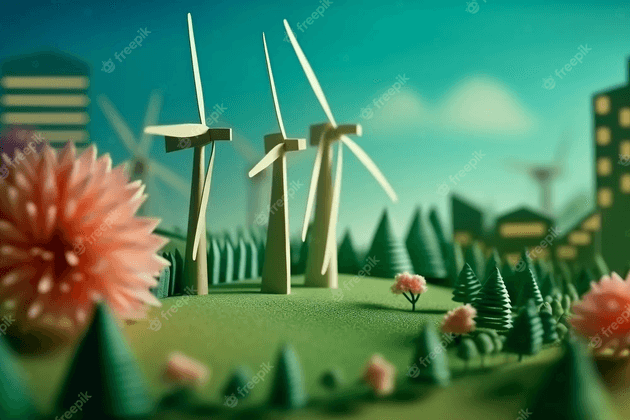Introduction:
In the face of escalating environmental concerns and the urgent need to mitigate climate change, the world is turning towards sustainable solutions like never before. Green technology, often referred to as green tech, is playing a pivotal role in this transformation. Green tech innovations encompass a wide range of technologies and practices aimed at conserving natural resources, reducing pollution, and promoting sustainability. In this blog, we will explore some remarkable green tech innovations that are revolutionizing various industries and driving us towards a greener, more sustainable future.
Smart Home Technologies: Embracing Energy Efficiency and Conservation
In our quest for sustainable living, smart home technologies have emerged as game-changers. Energy-efficient appliances, such as smart refrigerators and washing machines, are designed to minimize energy consumption while maintaining optimal performance. By using advanced sensors and algorithms, these appliances can adapt their operation based on usage patterns, thereby reducing wasteful energy consumption. Smart thermostats allow homeowners to regulate heating and cooling, adjusting temperatures based on occupancy and weather conditions, resulting in significant energy savings. Home energy monitoring systems provide real-time data on energy usage, enabling individuals to make informed decisions about conservation and identify areas for improvement. Water conservation solutions, like smart irrigation systems and low-flow fixtures, help reduce water waste in households. Additionally, home automation systems allow for efficient energy management, enabling lights, appliances, and HVAC systems to be controlled remotely and intelligently, further optimizing energy usage.
Sustainable Food Production: Nurturing the Planet and Our Health
Green tech innovations are revolutionizing the way we grow and consume food, addressing the challenges of resource scarcity and environmental degradation. Vertical farming and hydroponics enable food production in urban areas with minimal land and water usage. These techniques utilize vertical stacking and controlled environments to maximize crop yield and reduce the need for harmful pesticides and herbicides. Indoor gardening systems, such as countertop herb gardens and vertical planters, empower individuals to grow fresh produce at home, reducing transportation emissions and promoting a connection to nature. Precision agriculture techniques, coupled with Internet of Things (IoT) technologies, optimize farming practices by monitoring and managing crops' health and resource usage. Sensors, drones, and data analytics enable farmers to apply fertilizers, water, and other inputs precisely where and when needed, minimizing waste and environmental impact. Sustainable aquaculture practices focus on minimizing the environmental impact of fish and seafood production through responsible feed sourcing, water management, and waste treatment. Additionally, plant-based alternatives and cellular agriculture are offering sustainable alternatives to traditional animal agriculture, reducing greenhouse gas emissions and land use.
Eco-Friendly Consumer Electronics: Reducing Waste and Environmental Impact
The electronics industry has been a significant contributor to e-waste and environmental degradation. However, green tech innovations are driving positive change in this sector. Energy-efficient devices and power management technologies are reducing energy consumption and extending battery life. Manufacturers are embracing sustainable materials in electronics manufacturing, such as recycled plastics and bio-based components, reducing the reliance on virgin resources and minimizing the carbon footprint of production. Programs like Electronic Product Environmental Assessment Tool (EPEAT) certification encourage sustainable design and end-of-life recycling of electronic products. Repairability and modular design are gaining traction, allowing consumers to repair and upgrade devices instead of discarding them, extending the lifespan of products and reducing electronic waste. Additionally, low-power connectivity technologies, such as Bluetooth Low Energy, enable energy-efficient communication between devices, reducing power consumption and extending battery life.
Conclusion:
Green tech innovations hold tremendous potential to address the pressing environmental challenges we face today. From renewable energy sources to energy storage breakthroughs, sustainable transportation, smart cities, and circular economy practices, these innovations are paving the way for a cleaner, greener future. However, to fully realize their impact, it is crucial for governments, businesses, and individuals to collaborate and invest in green technologies. By harnessing these sustainable solutions, we can create a world that is not only ecologically balanced but also economically prosperous. Let us embrace green tech innovations and work together to build a sustainable planet for future generations.
